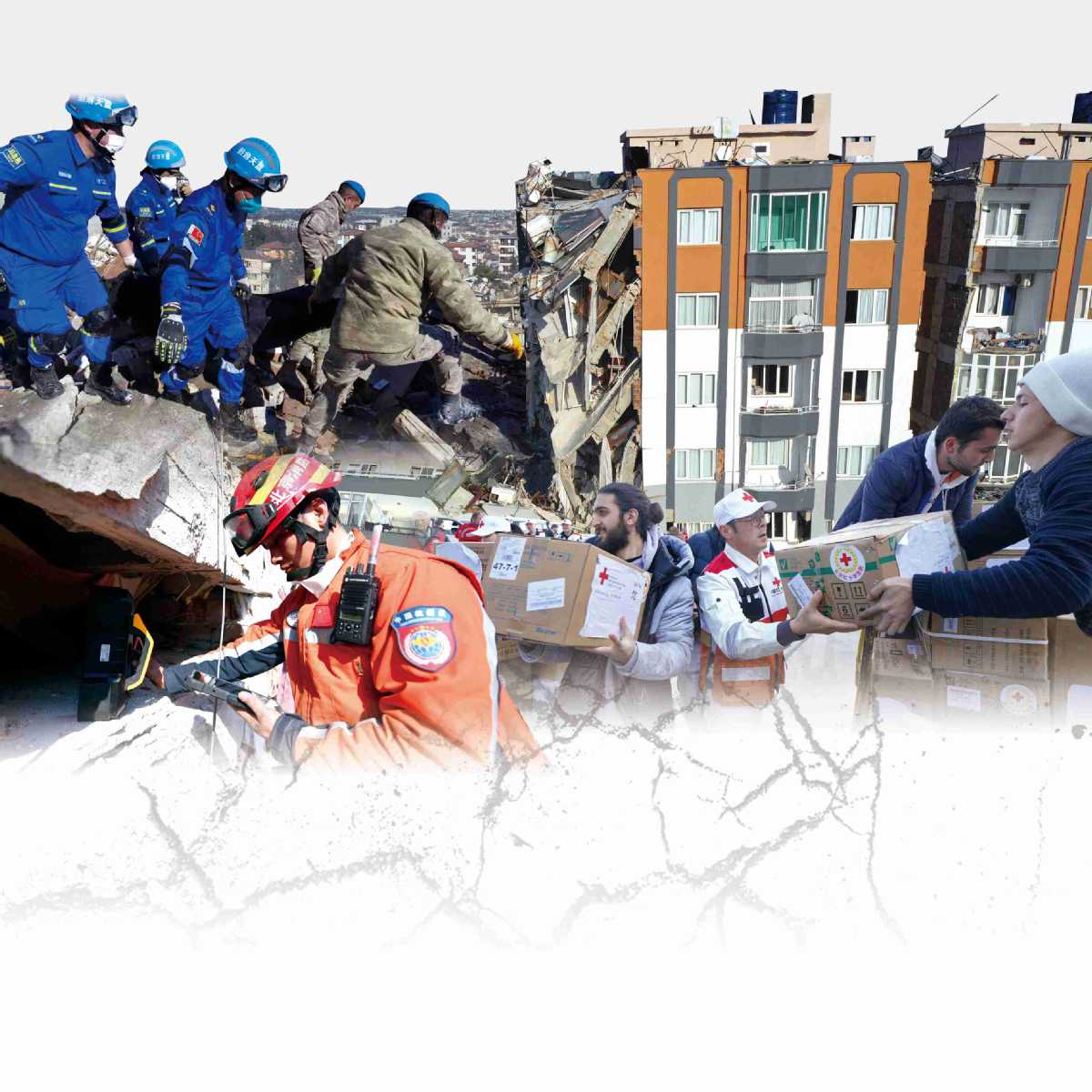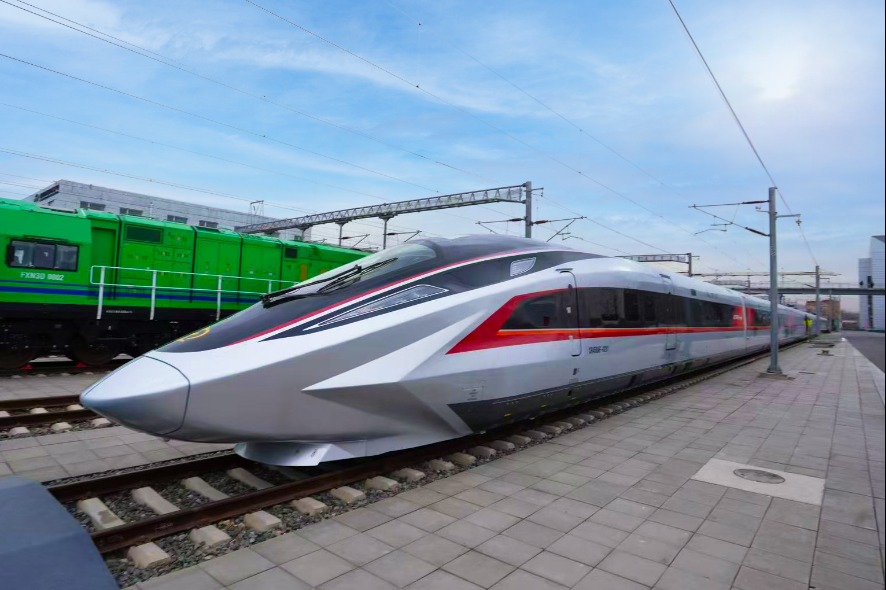Chinese civilian groups quick to join quake rescue work


Teams touched by support offered in Turkiye and from home
When he learned that a magnitude 7.8 earthquake had hit Turkiye and Syria on Feb 6, Wang Kaibo was being involved in a charity activity sending oxygenators and health packs to elderly people living alone, as part of COVID-19 prevention work.
"My first reaction was that I needed to head home to pack my emergency equipment," said the 41-year-old from Xining, capital of Qinghai province, who is a member of Blue Sky Rescue, China's largest nongovernmental humanitarian organization.
"Since joining BSR 15 years ago, I have taken part in all its major operations, so I had to join this one," he said.
After an emergency consultation, 127 BSR members from throughout China assembled in two cities with direct flights to Turkiye — Wuhan, capital of Hubei province, and Guangzhou, capital of Guangdong province, and flew to the stricken country on Feb 8. Wang was one of about 60 members of the group who assembled in Wuhan.
China's official 82-strong rescue team arrived in Antakya, one of the cities worst affected by the quake, at 4:30 am local time that day.
A second quake of magnitude 7.5 struck nine hours after the first, bringing more devastation.
The official team was followed by more BSR members, rescuers from other Chinese civilian teams and people from local Chinese communities.
After arriving in Wuhan on Feb 7, Wang had two sleepless nights. As deputy commander of BSR's operation in Turkiye, the immediate task was preparation work for his team.
He obtained immigration documents and drew up a list of the equipment BSR members were carrying, and also started thinking about a work plan.
Wang was so busy in Wuhan that day, that for dinner he only ate two kebabs from a store he passed while going to buy thick clothing to combat freezing temperatures in Turkiye. He did not sleep that night.
He also had no time to rest during the 10-hour flight to Istanbul next day.
Access to in-flight Wi-Fi enabled him to communicate with other leaders of his team on the way to Turkiye to discuss the team's work plan, before arriving in Istanbul at 1 am local time on Thursday.
Soon after, the team flew to quake-hit Malatya, arriving in the city at 5 am. "We are racing against time," Wang said, adding that without any rest, the team members headed to an area assigned to them by the UN for rescue operations.
Reaching a school that acted as the team's base after a day of rescue operations on Friday, Wang immediately fell asleep on two desks he placed together.
He said that by noon Beijing time on Friday, BSR members had helped pull seven survivors and 78 bodies from the rubble. The team carried out search and rescue operations in 302 damaged buildings.
Despite his fatigue, Wang was touched by the support offered by local residents.
"No matter where we went and what time it was, people always came to provide us with food, including a type of flatbread, and tea," he said.
In a WeChat post, Yang Zhijian, member of a BSR branch from Chongqing, said the boss of a supermarket in Malatya refused to accept payment from him when he went to buy food for his teammates.
"I asked my interpreter to tell him I was not going to take anything if he didn't accept money. We don't take anything for free in China, let alone in a foreign country," the 35-year-old said in the post.
Yang took a photo with the boss at the latter's request before leaving.























